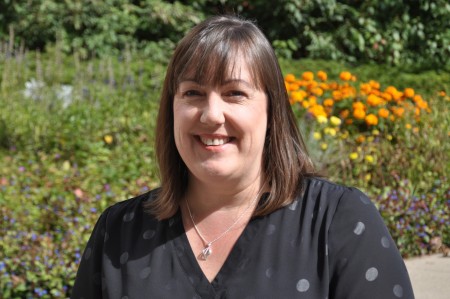
About one-third of post-secondary students are 25 or older, and many have long-term partners and children to complicate their work-life-school balance. Prof. Tricia van Rhijn, Department of Family Relations and Applied Nutrition, has researched the challenges and benefits for these older students and found there’s an increase in divorce rates when one partner goes back to school. It’s also more difficult for them to complete their studies, compared to younger students.
“Mature students also tend to have higher grades, but tend to drop out of school more frequently — usually because of family responsibilities,” says van Rhijn, who was once a mature student herself. “Withdrawing from studies is costly to the individual students, their families and the schools.”
Her previous research found that partners play an important role in the lives of mature students in university, both as motivators and as sources of social support.
Van Rhijn’s recent research looks at how participation at university impacts relationship quality for mature students. She found that partnered mature students experience conflicts between their multiple roles, in particular those at school and at home, which negatively affect their relationships. There is also evidence that mature students experience some enrichment from their additional student role that carries over into their partner relationship.
Van Rhijn surveyed mature post-secondary students at institutions across Ontario. She asked about their relationships, including sexual desire and frequency, family and partner support, and school satisfaction.
The study found that returning to school often puts stress on relationships, as students have less time to spend with partners and are often too tired or under too much stress for intimacy.
“There never seems to be time to complete my school commitments and to also spend quality time with my spouse,” says one female student, age 51, in the study. “My spouse always takes a backseat to schoolwork these days.”
A smaller number of students reported positive changes. Some described experiencing personal growth when returning to school and feeling more vitalized, which improved their relationships.
The participants also discussed how universities can provide more campus support for mature students and their partners, such as preparation and orientation geared specifically to couples, and counselling for couples having difficulties. Van Rhijn says considering mature students’ relationships could be helpful in improving student learning outcomes and experience.
“Successful access to and supports for the completion of post-secondary education programs are key for adults who otherwise would be potentially stuck in low-paying jobs or precarious employment with little chance of career advancement,” she says, adding that adult education can also help reduce poverty, integrate newcomers to Canada both economically and socially, and retrain displaced workers for other careers.
Van Rhijn adds that as mature students continue to be a significant population on campuses, addressing their concerns to retain them as students is an important issue for universities.
Van Rhijn is now turning her attention to the partners of mature students. With funding from a Social Sciences and Humanities Research Council Insight Development grant, she is beginning a larger study that will include both students and their partners to better understand the impact that attending school has on the supporting spouse.
“I think that once we have the partners’ voices included, we’ll be able to see a fuller picture,” she says.